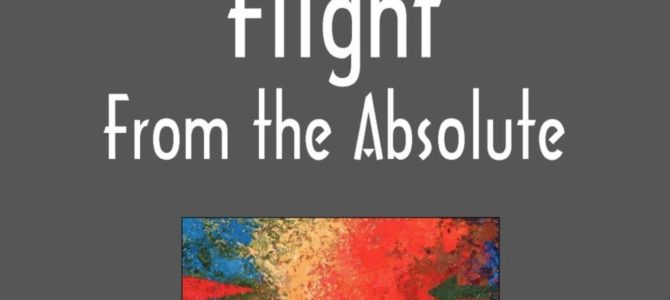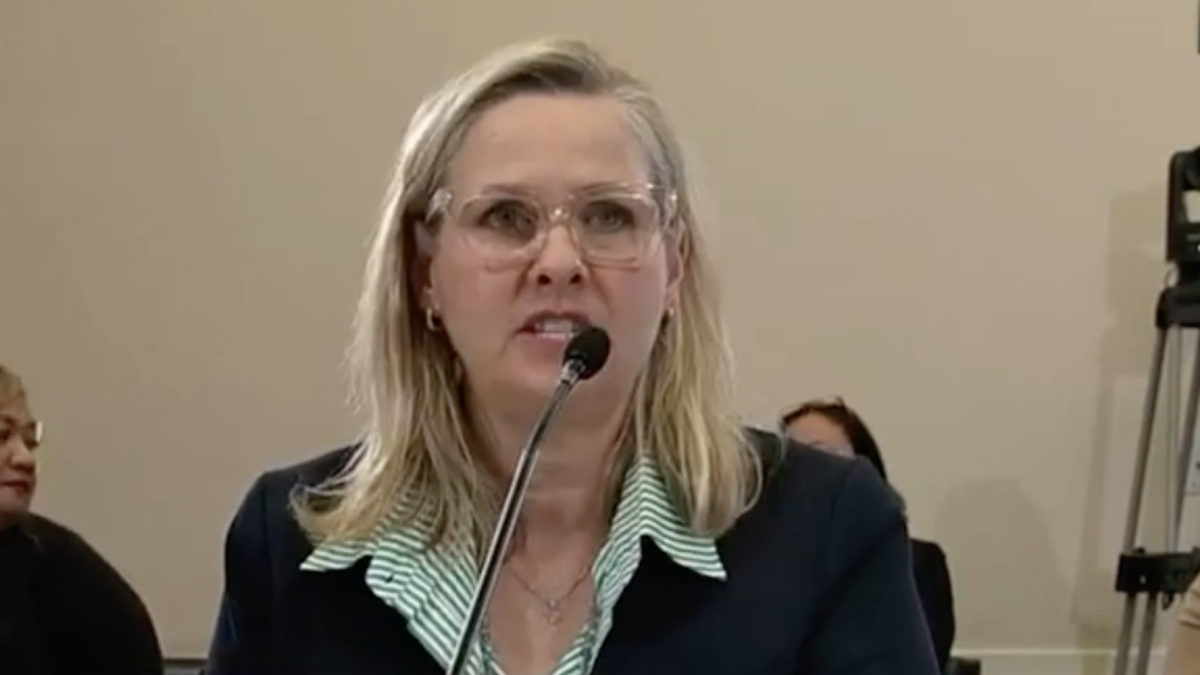
I have been asked over and over again: Is postmodernism a good thing for traditional, religious-minded conservatives who respect the Bible’s authority and believe that individuals and societies should be guided by universal moral standards? My answer, naturally, is yes and no.
Inasmuch as postmodernism has helped shatter the materialistic, totalitarian, non-theistic systems of Charles Darwin, Sigmund Freud, and Karl Marx, it has helped open the door to realities that transcend the naturalistic cage into which modernism has imprisoned us. It has set the individual free from the iron rule of the collective, allowing each of us to seek after happiness and write our own narrative.
But that freedom has come at a high price. Postmodernism may have shattered the chains of fascism, communism, scientism, and utilitarianism, but, in doing so, it has also “freed” us from all absolutes. Postmodernism provides no ground for the existence of Goodness, Truth, Beauty, or Justice; neither does it provide any fixed ground for the essential value, worth, and dignity of each and every human being. It allows for a kind of spirituality, but that spirituality is non-binding and free-floating, untethered from any final meaning, purpose, or reality.
There is no lack of books on the various distinctions between modernism and postmodernism, nor on the benefits and dangers of the latter, but few have captured the full picture and even fewer have offered a precise, clinical analysis of the hidden project, methods, and ethos of postmodernism. As I recently learned, a Canadian critic named Paul Gosselin has written such a book, one that has been available in English for the past six years and in French for the past 12—but it remains all but unknown in America.
Flight from the Absolute: Cynical Observations on the Postmodern West, Volume I, skillfully translated by the author from his Fuite de l’Absolu: Observations cyniques sur l’Occident postmoderne, volume I, presents the best, most comprehensive critique I have read, not only of the postmodern worldview, but of how that worldview has been disseminated in such a way as to mask its presuppositions.
Nothing Should Scandalize Us
Although Gosselin accurately defines postmodernism as a reaction against the political and ideological absolutism of the Enlightenment (modernism) with its unquestioning faith in reason, science, and progress, he makes it clear that the two movements share a common view of man. “In the eyes of modern or postmodern elites, man is no more than an object. He has no particular status and must be content to grope about in time and space, in a world where nothing, in itself, has meaning or particular significance,” Gosselin observes. That is why postmodernism, although it is open to realities outside of the scientific box of the Enlightenment, will not allow Darwinian evolution to be questioned.
Again and again, Gosselin comes back to this central aspect of postmodernism, one whose significance is too often overlooked by critics: “Despite the fact that postmodern scholars zealously attack colonialism, patriarchy and other Western institutions, we should not expect from them anything like a serious deconstruction of the West’s own dominant metanarrative, the theory of evolution, as it constitutes the logical basis for postmodern relativism.”
To preserve their non-negotiable allegiance to ethical relativism, postmoderns must deconstruct the universal, cross-cultural moral code that C. S. Lewis, in The Abolition of Man, dubbed the Tao. However, to do that, postmoderns must find a way around the Tao-originating God of the Bible.
New Age spiritualism is no threat, for it makes no ultimate demands on the individual. But a loophole must be found to protect them from the moral-ethical standards of the all-holy, all-powerful monotheistic Creator God of Judaism, Christianity, and Islam. At least for now, the only safe and effective loophole is Darwinism.
Yet, ironically, the postmodern insists on having it both ways. He needs evolution to free him from accountability to the Tao, but doesn’t really want to live in a survival-of-the-fittest world. Thus, he makes illogical statements like this from Richard Dawkins: “I’m a passionate Darwinian when it comes to science, when it comes to explaining the world, but I’m a passionate anti-Darwinian when it comes to morality and politics.”
One of Gosselin’s greatest strengths is his talent for selecting just the right quotes from postmoderns who, unlike Peter Singer, do not have the courage of their convictions. While Singer feels no qualms about assigning greater rights to living animals than to children in the womb, most postmoderns cling to the inherent dignity of the individual while knocking the supports out from under such dignity. In the same way, they preach moral relativism while being continually shocked and outraged by their opponents’ ethical scandals. Clearly, reasons Gosselin, they have forgotten that “if there is no such thing as a universal moral code and nothing is forbidden, then logically nothing should scandalize us.”
The Ruling Metanarrative
Consistent postmodernism is not, and yet, it has thoroughly infiltrated, and dominated, the public square. How has it achieved this victory? In answering this question, Gosselin shows himself at his most original and provocative. Postmodernism, he argues, has been established as the ruling metanarrative in the West, not through the power of generals, dictators, or politicians, but through national educational institutions, supreme courts, and, above all, the media. All three have pulled off a most amazing feat: Squelching dissent while maintaining the illusion of tolerance and objectivity.
Each, explains Gosselin, “has its own sub-mythology, its exclusive heroes or demigods, and high priests. Media, for example, fosters the myth of the objective journalist, dispassionately weighing facts, dispelling ignorance, seeking the truth about particular events, a truth suppressed by large evil corporations. In educational circles, one finds the myth of the great scientist or teacher sharing his knowledge and freeing the masses from prejudice and superstition. In legal circles, one encounters the mythical brave and altruistic lawyer, seeking justice and defending the rights of the lowly outcast.”
All three, but especially the media, act as gatekeepers who prevent dissenting voices from being given a public hearing. “They are the ones that establish postmodern taboos, prescribe and prohibit certain behaviours or attitudes . . . [and] define what should be considered ‘insignificant’ (and thus worthy of being ignored, silenced or, if necessary, censored). They ask the questions, but never answer questions themselves. To a large extent they control the context of discourse in the public square,” Gosselin notes.
Yes, postmoderns have shown themselves to be quite skilled at shouting down points of view they do not like, but they show their real power by so framing the discourse and controlling the flow of information that anti-postmoderns’ views are either ignored or marginalized.
Gosselin rips away the façade of postmodern tolerance and objectivity with the precision of a surgeon removing a hidden, but malignant tumor. But he does far more than expose media bias. He discerns and then unpacks how postmodernism so positions itself between the individual and the state as to exert the influence of a totalitarian religion while avoiding all the outward signs that would reveal it as such.
“The postmodern religion avoids confrontation, the moment of decision and it offers no explicit conversion rituals. Through exploiting of mass media, it takes hold, and society’s basic beliefs are manipulated by means of a gradual process of modification and infiltration,” he writes. “The postmodern conversion process is implicit, unconscious and primarily targets control of social institutions rather than convincing individuals. Moreover, the postmodern religion also sees the State as an essential tool to establish its Holy Order. As a result, the State must be dominated by postmodern elites.”
Think of how American postmoderns succeeded in altering the traditional, Tao-based understanding of marriage and the sexes as a prelude to achieving gay marriage as a social and political reality. Rather than use force or issue a revolutionary declaration of principles, they slowly and subtly accustomed Americans to the idea of gay marriage and gender fluidity by infiltrating the media with happy, non-threatening LGBT characters and images.
Once Americans had been rendered receptive—not through direct, conscious conversion but by a kind of unconscious, apathetic inertia—the state, through its court system, was brought in to explicitly change external institutions in keeping with the implicit changes already made to the psyches of American citizens who would have resisted a more direct assault on their traditional, moral-ethical beliefs and standards.
Contradictions Can’t Go On Forever
Postmodernism’s ability to change individual minds and hearts without resorting to the kind of crude and brutal propaganda employed by twentieth-century fascism and communism rests on its consummate skill at manipulating the media. But that skill has itself been rendered effective by an even more subtle change that postmodernism has effected in the population as a whole.
“When facing disasters or the hard knocks of life, postmoderns do not have the reflex, as would an individual influenced by the Christian heritage of the Middle Ages to take on the role of the penitent, self-questioning and repenting in sackcloth and ashes,” Gosselin writes. “Under the same circumstances, postmoderns typically take on the role of the victim that has seen his human rights violated. Victims never need self-examine themselves. A victim is never held accountable for what he has done.”
A society of individuals who constantly choose the veil of victimhood over the robes of repentance is precisely the kind of society that will see no contradiction in a postmodern ethos that veers madly between moral relativism and moral outrage, that refuses to abide by the Tao while using scandals to discredit their political enemies and social critics. But it cannot do so forever. Our paradigms and presuppositions, what Gosselin calls our cosmologies, eventually catch up with our beliefs and behaviors.
As Gosselin demonstrates in the final section of his book—which he disturbingly titles “Cannibals”—the twin postmodern obsessions with specism (that has hastened the breakdown of the human/animal barrier begun by evolution) and transhumanism (that has extended that breakdown to the organic/inorganic barrier) threatens to overthrow any and all basis for human dignity. For a while, Gosselin argues, memories of the Holocaust have vaccinated the West against the horrors of eugenics, but memories of Hitler’s Darwinian experiment are fast fading.
The postmodern media assure us that the growing field of bioethics is sufficient to protect our civilization from a return to totalitarian, dystopic attempts to manipulate the human gene pool, but Gosselin’s common-sense cynicism gives the lie to that feeble, Tao-less assurance. “There is no doubt that biotech research institutes, companies and industry associations are concerned with ethical issues. They have put together bioethics committees producing voluminous reports, but in many instances, their primary function is marketing, as they are paid to promote the latest product the industry has decided should constitute a response to a market need,” he warns.
In fleeing from the absolute, we risk, in the end, fleeing from our own humanity.









